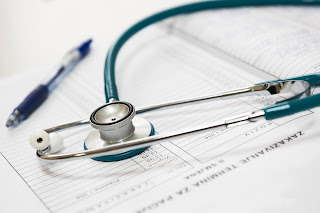Diet that controls cholesterol levels
Cholesterol is a substance in the lipid group, produced in a proportion of 75-80% in the body. The rest comes from food, ie animal fat. What to eat if we have high cholesterol.
Specialists do not tire of drawing our attention to the fact that a high level of cholesterol in the blood means more deposits on the walls of the arteries, which thus thicken, turning into rigid tubes.
Blood circulation is impeded which means less nutrients reach the vital organs. Dr. Mihaela Posea, specialist in diabetes, nutrition, metabolic diseases, at the Smart Nutrition Clinic, doctor of medicine, explains how many types of cholesterol it is and how it acts in the body.
At the same time, about how we can control cholesterol levels through a healthy diet.
Increased cholesterol is becoming an increasingly common problem, with high risks to our health.
What are the risks we are exposed to if we do not consider the effects of diet on cholesterol levels?
Elevated blood cholesterol levels have been associated with cardiovascular disease.
Myocardial infarction and stroke are two of the most common causes of cardiovascular disease.
Cholesterol can only be found in foods of animal, not vegetable, origin.
What is the difference between good and bad cholesterol?
Cholesterol is a substance that is found in all cells of the body and we need it to make sex hormones (estrogen, androgen, progesterone), corticosteroid hormones, but also vitamin D.
LDL is the main cholesterol-carrying lipoprotein, and its plasma levels are associated with cardiovascular risk, being called "bad cholesterol".
On the other hand, HDL transports cholesterol from peripheral tissues to the liver, where it is excreted, hence it is known as "good cholesterol".
What type of food should we include in our diet to avoid raising bad cholesterol? But to maintain good cholesterol?
We obtain an increase in the level of LDL cholesterol by consuming products with saturated fatty acids.
Some examples of foods that contain these saturated fatty acids are: red meat, poultry skin, whole milk, fried foods, margarine, lard, butter, pastries / confectionery, processed foods such as sausages.
There are also foods that contain cholesterol-like substances, which compete with it for absorption - they are called phytosterols.
They are compounds found in plants - sesame oil or seeds, sunflower, almonds, olives.
To increase the level of HDL cholesterol it is good to quit smoking, to do physical activity, to consume less foods with trans fatty acids - which we can find in margarines, in some pastries - biscuits, cakes, in fried foods.
Also to influence the level of HDL cholesterol, it is recommended to eat foods with unsaturated fatty acids - such as vegetable oils.
In terms of carbohydrate foods - it is preferable to choose those rich in fiber - cereals / bread / rice / whole wheat pasta, fruits and vegetables.
Can high cholesterol drop if we change our diet? What type of diet should we approach to minimize high cholesterol?
In order to reduce the level of total cholesterol and LDL cholesterol, we need to make lifestyle changes: reduce the consumption of saturated or trans fatty acids, have a diet rich in fiber and phytosterols, lose weight. - those people who are overweight or obese - and do physical activity.










No comments :
Post a Comment